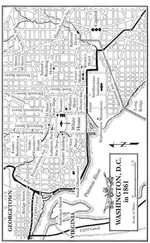John Ashton - Gossip in the First Decade of Victoria's Reign
Здесь есть возможность читать онлайн «John Ashton - Gossip in the First Decade of Victoria's Reign» — ознакомительный отрывок электронной книги совершенно бесплатно, а после прочтения отрывка купить полную версию. В некоторых случаях можно слушать аудио, скачать через торрент в формате fb2 и присутствует краткое содержание. ISBN: , Издательство: Иностранный паблик, Жанр: foreign_antique, foreign_prose, на английском языке. Описание произведения, (предисловие) а так же отзывы посетителей доступны на портале библиотеки ЛибКат.
- Название:Gossip in the First Decade of Victoria's Reign
- Автор:
- Издательство:Иностранный паблик
- Жанр:
- Год:неизвестен
- ISBN:http://www.gutenberg.org/ebooks/30665
- Рейтинг книги:3 / 5. Голосов: 1
-
Избранное:Добавить в избранное
- Отзывы:
-
Ваша оценка:
- 60
- 1
- 2
- 3
- 4
- 5
Gossip in the First Decade of Victoria's Reign: краткое содержание, описание и аннотация
Предлагаем к чтению аннотацию, описание, краткое содержание или предисловие (зависит от того, что написал сам автор книги «Gossip in the First Decade of Victoria's Reign»). Если вы не нашли необходимую информацию о книге — напишите в комментариях, мы постараемся отыскать её.
Gossip in the First Decade of Victoria's Reign — читать онлайн ознакомительный отрывок
Ниже представлен текст книги, разбитый по страницам. Система сохранения места последней прочитанной страницы, позволяет с удобством читать онлайн бесплатно книгу «Gossip in the First Decade of Victoria's Reign», без необходимости каждый раз заново искать на чём Вы остановились. Поставьте закладку, и сможете в любой момент перейти на страницу, на которой закончили чтение.
Интервал:
Закладка:
The Manchester Guardian of 14th April gives an account of a woman living in that city, who for many years passed as a man, which has occurred before, but the extraordinary part of this story is that she married another woman . – “Subsequent inquiries confirm the truth of the statements made in the Guardian of Wednesday last, as to this singular case. This woman man, who, for probably more than 25 years, has succeeded in concealing her sex, and in pursuing a trade of more than ordinarily masculine and hazardous description, with a degree of skill and ability which has led to her establishment in a good business in this town, bound herself apprentice, at the age of 16 or 17 years, to a Mr. Peacock, a bricklayer and builder, at Bawtry, a small market town in the West Riding of Yorkshire. She did not remain with Mr. Peacock during the whole period of her apprenticeship, but was ‘turned over,’ as it is called, to another person in the same business. It was during her apprenticeship that she met with her present wife; and they were married at the old parish church of Sheffield, in the year 1816, when the wife was only 17 years old. Since the investigation and disclosure of the circumstances, on Thursday week, the wife and husband have separated. She was, for many years, a special constable in the 13th division of that body, acting for this town; and we are assured that, on all occasions when the services of the division were required, as at elections, Orange processions, and meetings of trades’ unions, turn-outs, etc., so far from absenting herself from what, as in the case of well founded apprehension of a riot, must have been, to a woman, a post of some unpleasantness, she is remembered to have been one of the most punctual in attendance, and the most forward volunteer in actual duty, in that division. We understand that she is no longer a special constable, because she did not, on the last annual special session, held for that purpose at the New Bailey, present herself to be resworn. She was not discarded or discharged; there was no complaint against her; and, probably, the extension of her own business was her only motive for not resuming the duties of this office. Altogether, this is the most singular case of the kind which has ever reached our knowledge.”
The following is an advertisement which appeared in the Times of 27th April: – “Nelson Monument. – The Committee for erecting a Monument to the Memory of Lord Nelson hereby give notice that they are desirous of receiving from architects, artists, or other persons, Designs for such a Monument, to be erected in Trafalgar Square.
“The Committee cannot, in the present state of the subscriptions, fix definitely the sum to be expended, but they recommend that the estimated cost of the several designs should be confined within the sums of £20,000 and £30,000. This condition, and that of the intended site, are the only restrictions to which the artists are limited.”
In the same newspaper of 16 May, we read of a punishment which might, occasionally, be revived with advantage, as being less dangerous than the ducking stool, and, probably, quite as efficacious, although we have the authority of St. James, “For every kind of beasts, and of birds, and of serpents, and of things of the sea, is tamed, and hath been tamed of mankind, but the tongue can no man tame.” It relates how, “at the Mayor’s Court, Stafford, last week, Mary, wife of Thomas Careless, of the Broad Eye, a perfect termagant, was ordered to pay 1/– penalty, and 7/6 costs, for an unprovoked assault on Mary, the wife of Lewis Bromley. During the investigation, her garrulity was so incessant that the mayor was under the necessity of sending for the ‘scold’s bridle,’ an iron instrument of very antique construction, which, in olden times, was occasionally called into use. It is formed of an elliptical bow of iron, enclosing the head from the lower extremity of one ear to the other, with a transverse piece of iron from the nape of the neck to the mouth, and completely covers the tongue, preventing its movement, and the whole machinery, when adjusted, is locked at the back of the head. The bridle is to be put in thorough repair, and hung in terrorem in the Mayor’s office, to be used as occasion may call it forth.”
These “scold’s bridles,” or “branks,” as they are sometimes called, are not uncommon. The earliest dated one is preserved at Walton-on-Thames, and bears the date 1633, with the inscription:
“Chester presents Walton with a bridle,
To curb women’s tongues that talk to idle.”
Brayley, in his “History of Surrey,” says that it was given by a gentleman named Chester, who lost a valuable estate through a gossiping, lying woman; but, as there are several examples of branks in the Palatinate, one being kept in the gaol at Chester, some people think it was a present from that city. There is one at Leicester, and another at Newcastle-on-Tyne, which used to hang in the mayor’s parlour, and tradition has it that many cases of disputes between women have been speedily and satisfactorily settled on his worship’s pointing to these branks.
There is one in the Ashmolean Museum at Oxford, which is very tender as far as the gag is concerned, but which has a leading chain fastened between the eyes. Hainstall, Ridware, Lichfield, Morpeth, Shrewsbury, Holme, Kendal, Altrincham, Macclesfield, Congleton (where it was last used in 1824), all have examples, whilst Chester has four! There are several in Scotland, and there are some in private hands, notably one which used to be in the Mayer Museum, Liverpool, which came from Warrington, where, however, the brank formerly used at Carrington is preserved, and there are several places – Newcastle-under-Lyne (now in the Mayer Collection), Manchester, and others – where they have existed. There is a very grotesque one in Doddington Park, which is a mask, having eyeholes, and a long funnel-shaped peak projecting from the mouth; and there are some very terribly cruel ones, with fearful gags; but these can scarcely come under scold’s or gossip’s bridles. There was one at Forfar, with a spiked gag, which pierced the tongue, and an even more severe one is at Stockport; whilst those at Ludlow and Worcester are, also, instruments of torture.
CHAPTER V
Thom, the religious fanatic – His riots and death – Delusions of his followers.
From the earliest ages of Christianity pseudo-Christoi , or false Christs, existed. Simon Magus, Dositheus, and the famous Barcochab were among the first of them, and they were followed by Moses, in Crete, in the fifth century; Julian, in Palestine, circa A.D. 530; and Screnus, in Spain, circa A.D. 714. There were, in the 12th century, some seven or eight in France, Spain and Persia; and, coming to more modern times, there was Sabbatai Zewi, a native of Aleppo, or Smyrna, who proclaimed himself to be the Messiah, in Jerusalem, circa 1666. A list of religious fanatics would be a long one, but the pseudo-Christos of modern times was, certainly, John Nicholl Thom, of St. Columb, Cornwall, alias Sir William Percy Honeywood Courtenay, Knight of Malta, and King of Jerusalem; who also claimed to be Jesus Christ, in proof of which he shewed punctures in his hands, and a cicatrice on his side.
He was first introduced to public notice in Michaelmas, 1832, when he paid a visit to Canterbury, and took up his abode, for some time, at the “Rose Inn,” where he was remarkable for his eccentric behaviour, passing under the name of Rothschild. His countenance and costume denoted foreign extraction, while his language and conversation showed that he was well acquainted with almost every part of the kingdom. He often dressed in a fine suit of Italian clothing, and, sometimes, in the gayer and more imposing costume of the east. In December of the same year, he surprised the inhabitants of Canterbury by proposing himself as a candidate for the representation of that city in Parliament, under the name of Sir W. P. H. Courtenay. His canvass proceeded with extraordinary success; and, such were his persuasive powers, that people of all ranks felt an interest in his society; some, however, considered him insane, while others were of a contrary opinion, and he did not succeed in his ambition.
Читать дальшеИнтервал:
Закладка:
Похожие книги на «Gossip in the First Decade of Victoria's Reign»
Представляем Вашему вниманию похожие книги на «Gossip in the First Decade of Victoria's Reign» списком для выбора. Мы отобрали схожую по названию и смыслу литературу в надежде предоставить читателям больше вариантов отыскать новые, интересные, ещё непрочитанные произведения.
Обсуждение, отзывы о книге «Gossip in the First Decade of Victoria's Reign» и просто собственные мнения читателей. Оставьте ваши комментарии, напишите, что Вы думаете о произведении, его смысле или главных героях. Укажите что конкретно понравилось, а что нет, и почему Вы так считаете.












